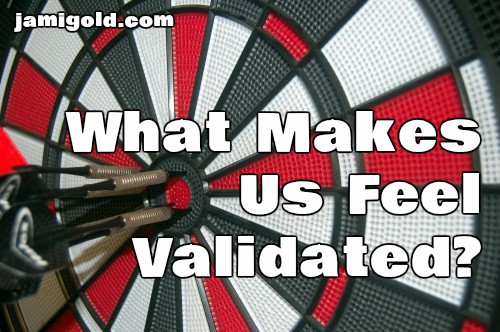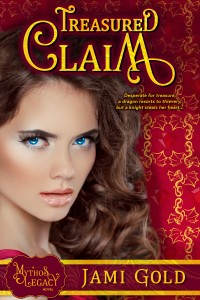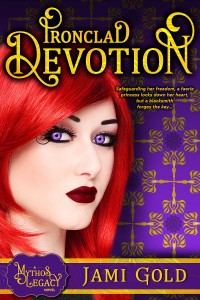What’s Your Validation?

Writers are often a neurotic, self-doubting lot. We doubt whether we’re telling the right story, whether we can do our idea justice, whether that sentence needs a comma or not. *smile*
That doubting continues over our writing journey, and many of us hope for validation as a means of overcoming that doubt. We hope to get an agent or a traditional publisher. We hope to win contests. And we hope for lots of readers, sales, and good reviews.
Of course, we never want to think about how that validation is only temporary. We might find an agent who doesn’t reject us, but we’re not likely to get an offer of a book deal from every publisher they submit our work to. We might receive a positive review, but we’ll likely receive a negative review eventually as well. And we might have a well-received book, but the blinking cursor taunts us with writing the followup.
That temporary nature of validation doesn’t stop most of us from wanting it however. The best we can do is try to create a healthy relationship with our validation desires. *smile*
My Journey to “Validation”
When I first started writing, I mostly just wanted assurance that I didn’t suck. Many can probably relate.
Of course, my first encounter with an editor (on a “submit a paragraph for feedback in a future post” editors’ blog) did the opposite. I learned I really did suck. *grin*
As the years and experience built up under my belt, I learned to appreciate the wins as they came. Others will be quick enough to bring us down if we let them.
First, I won a blog-submission contest. But that didn’t lead to anything with the sponsoring agent.
Years of query rejections followed. But at the same time, my contest scores improved. Lesson: we win some; we lose some.
How Much Validation Do We Need?
By the time I’d won multiple contests with Treasured Claim—to ensure the first win wasn’t fluke, of course—I’d reached the point that I no longer needed validation from an agent to have faith in my story. My long road to publication was no longer about my writing, but about my query (which sucked) and my genre (which was considered “dead” by the powers that be).
Multiple contest wins were the validation I needed to feel ready to self-publish instead of waiting for a good-enough traditional publishing deal. …And then I spent the next year revising and editing (despite those contest wins) to make sure I was really ready to debut.
Because still, even after all that, I worried. *smile*
Is It All Good? Or Just Partially Good?
My worries were legitimate because, after all, pre-publication contests typically judge a story based on only the first few chapters. Plenty of stories do well in those contests yet never manage to get a publishing deal because the rest of the story doesn’t hold up. I had no idea how my story would compare.
Yet now as a self-published author, the most validation I can usually hope for is a great review here and an email from a reader there. I have fewer options for finding contest-style validation, as there aren’t as many respected contests for published books.
(Notice I said respected contests. Plenty of “contests” go after the self-published-author crowd and seem mostly to be in the business of making money off entrance fees from self-published authors desperate for validation. *sigh*)
However, I did find a few published-book contests that have been respected for a while and now also accept self-published books. Even there, I was picky.
When I was a pre-published author, I looked for contests that used agents and editors (that I wanted to work with) for their final judges. But that’s usually irrelevant once we’re published.
Instead, published contests tend to fall into three categories. Some are judged by other authors, some are judged by a panel of “experts,” and some are judged by a segment of the reading community—readers, review bloggers, librarians, etc.
I decided to focus on the last option. I figured that it no longer mattered what most other authors thought (or “experts” for that matter). I’d rather know what the reader community thought.
Back in January, I entered a couple of contests open to romance books published in 2015. These contests had been around for decades and used readers and librarians for judges. And then I promptly forgot about entering because I’ve had endless health issues this year, and I don’t have time to obsess over contests anymore. *smile*
Will They Like Our Work?
We all know that writing is subjective. Not every reader will like our story.
With random readers, we can (probably) accept that truth, even though it might hurt with bad reviews. But in a contest, each reader is a judge, and we’ll only do well if every reader likes our work.
Contests are, by their very nature, a crap shoot. All 3-5 or whatever judges might love our work, or maybe all but one will love it—dooming our score.
It’s good to remind ourselves of that truth when we don’t final in a contest. Not finaling in a contest might mean nothing—other than that reading is subjective. But finaling… *smile*
Finaling means something. Finaling means that all those reader-judges liked our work, so our work is at least good enough to not trigger a dislike from several readers.
That essence of “meaning something” is true of most kinds of validation. Not being validated doesn’t necessarily mean anything negative about our work.
Our work can be great and still not appeal to agents or editors. It can still not find an audience in the over-saturated marketplace. And it can still not inspire readers to leave glowing reviews despite how much they enjoyed our story. None of that is necessarily a reflection on our work.
However, when we do get validation, that’s always going to feel meaningful. That means we overcame all the subjective, market craziness to connect with someone. And that’s awesome.
My Newest Validation…until Next Week *grin*
So when I received the news this week that my debut, Treasured Claim, wasn’t just a finalist, but a double finalist, in not just one, but two contests? And that Ironclad Devotion (the third book in the series) also finaled?
Two contests—five finals? Squee!
Treasured Claim is a double finalist in the 2016 Booksellers’ Best Awards (sponsored by Greater Detroit RWA):
- Paranormal Romance category
- Best First Book
Treasured Claim is also a double finalist in the 2016 National Reader’s Choice Awards (sponsored by Oklahoma RWA):
- Paranormal Romance category
- Best First Book
Ironclad Devotion is a finalist (Update!) the winner(!) in the 2016 National Reader’s Choice Awards (sponsored by Oklahoma RWA):
- Paranormal Romance category
So that means it’s not just my debut’s opening chapters that were good enough for contests. The whole book is good enough. And not just that book, but another one I’ve written too. And my writing is not just good enough for other authors, but also enjoyable to non-author readers and librarians.
Yeah, I can’t lie. That kind of validation feels good. Really good. *smile*
How Important Is Validation?
I don’t know how long this good feeling will last, but I’ll hold onto it while I can. Validation might not be necessary, but we all like receiving it, even (or maybe, especially) when it’s hard to come by.
There’s always another rejection or negative review waiting around the corner because that’s life. Our journey doesn’t end at a destination.
We’ll probably never get the sense that “we’ve arrived.” There’s always a new challenge or a new speed bump to overcome.
I like that aspect of writing—that we can always improve. But it’s nice to see milestones of progress along the way too. *smile*
How important is validation to you? Where do you get your validation? What type of validation means the most to you? What type of validation would you like to receive that you haven’t gotten yet?
Pin It


Reading this I almost wondered if you’d somehow heard me whining about lack of validation with contests. ^_^ You make great points, as per usual, so thank you. And congratulations on the contests, both books are excellent and well worthy of being finalists.
Hi Davonne,
LOL! Nope, I’ve just been on both sides of the issue lately, so I know not to assign too much meaning to either winning or losing. 🙂 Thanks for the congrats and kind words!
Congratulations, Jami!
Thanks, Christina! 🙂
I love to see someone who has gone the self-publishing route having real success. It’s refreshing to think that after receiving so many query letter rejections I may not need the damn thing at all.
Hi Logan,
LOL! Believe me, after my query struggles, I understand. 🙂
That said, going through the whole process helped my work grow and improve a lot. A shortcut that doesn’t get us to the level we need to be at for success doesn’t help much. 😉 Thanks for stopping by!
Many congratulations on your success!
I read your blog with interest each time it is updated and have picked up some very useful tips. Keep up the good work.
Hi Alyson,
Thank you! And thanks for the kind words! 🙂
Yay for you! That’s a heaping pile of validation right there 🙂
Personally, I’m going to feel great just having a finished book in my hands. Even better: people wanting to read it for some reason other than “I know the author!”
Better get on with it!
Hi Deborah,
Oh, no doubt about the feeling of a finished book. Even though I’m published, every book I complete is still a thrill. 🙂 Good luck with your writing so you can reach that point too!
Congratulations! Awesome to have two books finaling.
Congrats, Jami, and thank you for one of the the best blogs on writing — especially your brilliant writing sheets!
Regarding your questions:
Even if a writer produced some really bad writing and hears criticism about it, I think just to hear that underneath it all, you do have the talent and the ability to produce a great book or story — even if it didn’t happen this time or is in-process.
The other priceless validation is what you mentioned, to hear that what you write really means something to the reader and helps the reader in some way.
I think those are two of the most validating things and can get a writer through a lot of struggles, obstacles, and criticism. I try to validate my writer friends in this way because writers don’t necessarily get these validations.
Thanks again for everything you do and for all your hard work.
I haven’t had any validation in so long it’s pathetic. Of course, I haven’t been trying to proof my worth as a writer in quite a while either. The risks of putting myself out there must be done in order to get the approval, whether it be from my next-door-neighbor or the masses.
I think I need to talk to my writing buddy more, kick around some ideas for submissions into magazines and contests.
Jami – picked up your site through Marcy Kennedy’s work and I really like your site. I’m in the process of deciding the how’s and when’s of getting my site set up and I must say that I really like the arrangement of your site.
You are putting a university right before our eyes. Many, many thanks.
I have a question: Can you tell me the difference in a personal essay and a short story? I’m trying to write a nonfiction personal essay with scenes, characters and everything just like in a short story. The essay seems to be a short story to me. The only difference I see is that the essay is a nonfiction happening that has taken place. It has to be truthful, no fictional additions. Would appreciate any comments.
Olga Oliver.
[…] Remember how I mentioned last week that my book Treasured Claim was a double finalist in two contests? Let’s add two more finals […]
Greetings Jami,
Congratulation on your awards/success. Well deserved.
I always read your posts; I like your thought-process and well written blog. You really hit a cord with the “validation” topic. Thought I would post an idea which might help others. One opportunity we have in our Raleigh, NC area for feedback are “meetups”. I also attended a “critique group” when living in Charlotte, NC. These groups tend to be small of about 8-10 writers that submit stories to each other for critique. I love the opportunity to read and critique others, and have my work reviewed. Not for the faint of heart, a fellow has to have the “bark on” to deal emotionally with the face to face interaction. But for those really thankful for opportunities to improve their writing, it is an option. Just sayin’.
Stay Well,
Donovan
Hi Donovan,
Aww, thanks for the kind words!
Oh yes, I haven’t done an in-person critique group before (other than my parents and I was a newbie and didn’t know any better–LOL!), but you’re right about how for the right kind of person and group, that could really help us. And having the group’s feedback on how we’re improving could be extra validating for that in-person aspect. 🙂 Thanks for sharing!
[…] Writers often struggle with inner demons, especially the doubt about our ability. Margaret Dilloway tells us how to overcome Imposter Syndrome, while Jami Gold asks us to explore our validation. […]
So thrilled for you! Those are both big contests. Not surprised, but thrilled. 🙂
I don’t think it’s just writers, though. Doesn’t everyone enjoy having validation for their work? Whether it’s the waiter who gets a bigger tip, or the salesperson who gets a bonus, or the elementary teacher who gets a homemade Valentine from a student, or the veterinarian who gets a thank you for saving a pet. To me, I think what makes writing harder in some ways is the validations are often less tangible, distant, or far between. We write for long periods of time with no “attaboy” or “attagirl,” not knowing whether what we’re doing is as good as we think/hope it is. I think we have to seek out those validation experiences, because they keep us believing that what we do matters. And that keeps us writing.
Congratulations! That is super fantastic!
So happy for you!!! Well done?